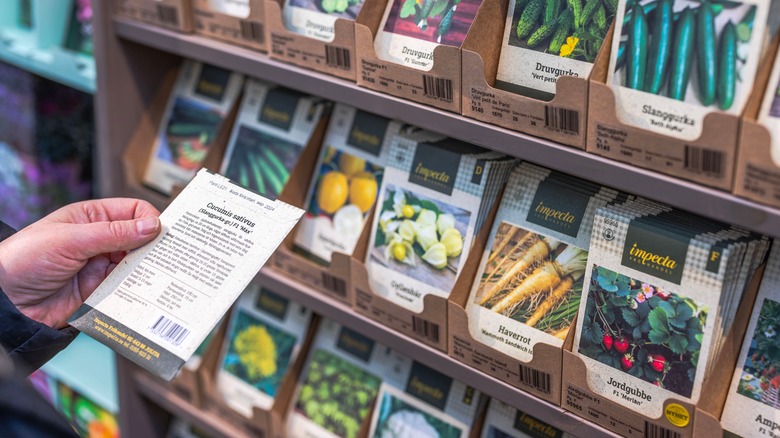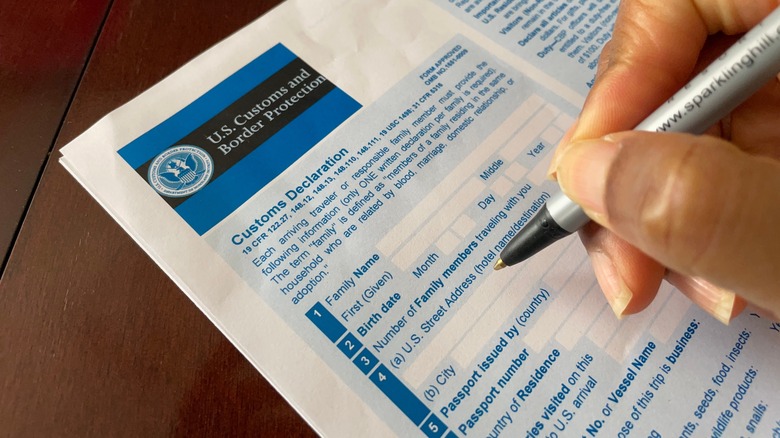If Your Travel Souvenirs Include Native Seeds, You Might Want To Think Twice
One of the most rewarding parts of traveling is seeing beautiful new landscapes and the many plants that comprise them, from sacred lotus flowers in India to wild papyrus in Egypt. If you've got a green thumb, you might be tempted to take some of the beauty home with you in the form of a seed souvenir. That seed could grow into something so unique that it has your neighbors staring. However, there are strict rules for bringing seeds into the United States from other countries (or even from overseas parts of the U.S. like Hawaii).
The U.S. Department of Agriculture has a subdivision called the Animal and Plant Health Inspection Service (APHIS), whose role includes regulating any plants that make their way into the United States. It's an important job: plants can give a ride to diseases or pests that can do serious damage to the environment or agriculture. Overall, APHIS recommends just buying your seeds in the U.S. – it's simpler and safer, and you can still purchase beautiful plants that are native to other countries, as long as they aren't considered invasive in the United States. There are many nitty-gritty rules for bringing seeds into the United States, and it could be difficult to figure all that out and get the necessary paperwork without disrupting your vacation. However, it's possible to bring seeds home from abroad if you're willing to do some legwork ahead of time.
Which seeds are allowed into the United States?
According to APHIS, you're only allowed to bring seeds of herbaceous plants (plants that aren't woody, like trees or shrubs) into the United States. You have to declare the seeds at the border so they can be examined, and you also have to get a phytosanitary certificate from the National Plant Protection Organization of country where you bought the seeds. This shows that the seeds are free of pests or diseases. The cost of this certificate varies by country. APHIS recommends planning at least 30 business days ahead to allow for processing time. Additionally, they advise keeping all your original receipts and packaging.
Many specific seeds have special requirements. For example, tomato and pepper seeds require testing for disease, and lentil, okra, and citrus seeds require treatment before you can take them home. Some seeds are prohibited altogether because they're considered parasitic or noxious or because they're endangered. If you bought seed tape or coated seeds, you'll have to take extra steps, like getting an obscured seed permit. The rules also depend on where you're traveling from; you can't bring cactus seeds or any fresh seed pods from Hawaii, for example.
As you can see, requirements vary a lot. If you know you want to bring seeds back with you from abroad, research the genus, species, and cultivar to see if it's allowed and what steps you need to take, or contact APHIS directly for help. Otherwise, you'll learn at the border whether the seeds can leave the airport with you. If they can't, you won't face any penalties as long as you were transparent about declaring your seeds.

